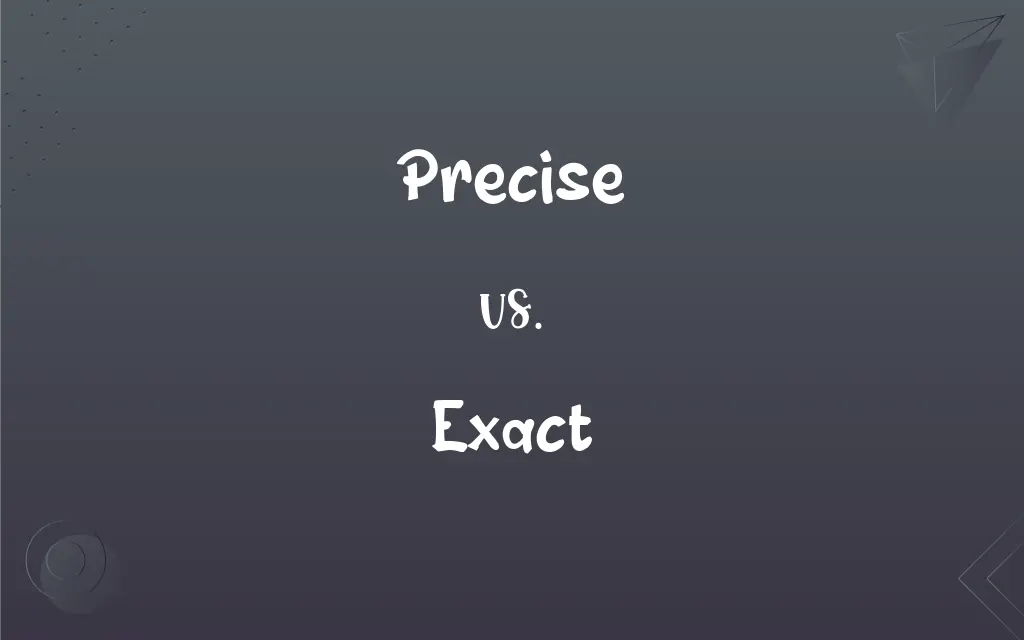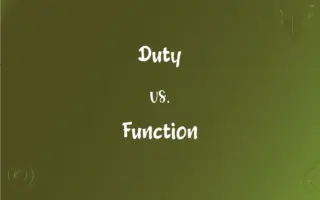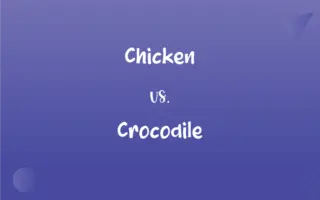Precise vs. Exact: What's the Difference?
Edited by Janet White || By Harlon Moss || Updated on November 2, 2023
"Precise" implies a high degree of accuracy, while "exact" suggests a strict and unvarying conformity to fact or detail.

Key Differences
The term "precise" is used to indicate accuracy and attention to detail, particularly in the context of measurement, performance, or description. It suggests a careful consideration of details to achieve accuracy. Exactness, on the other hand, denotes an absolute state of conformity to specifications or truth, without deviation.
When you describe something as precise, you are often referring to the meticulousness or fine-tuned nature of it. A precise measurement, for example, has been taken with care to ensure that it is as close to the correct value as possible. The term "exact," however, conveys a sense of being completely without error or variation. An exact replica is one that matches the original in every detail.
Precision often deals with the process or method used to achieve an accurate result, such as a precise technique. Exactitude refers to the result itself, being an exact match or quantity. For instance, a scientist may use precise methods to arrive at an exact value. In other words, precision is about the quality of the action, whereas exactness pertains to the outcome's adherence to a standard or original.
Precision can also imply a level of detail or fineness, such as precise language, where the words are chosen for their specific meaning. Exactness often carries with it a binary quality; something is either exact or it's not, like an exact amount of ingredients in a recipe. An exact statement leaves no room for interpretation, whereas a precise statement might still convey a specific yet nuanced message.
In some contexts, these words are used interchangeably, yet a subtle difference persists. Precise often carries connotations of a process that has been refined to ensure accuracy, while exact implies a definitive and unalterable state. A precise instrument provides exact readings, with the former describing the instrument’s capability and the latter the readings’ conformity to truth or standard.
ADVERTISEMENT
Comparison Chart
Definition
Marked by detail and accuracy.
Completely accurate, without any error.
Usage
Relates to the process or technique.
Relates to the outcome or result.
Connotation
Fine-tuned, meticulous.
Absolute, unvarying.
Flexibility
Can be close to an exact value.
No deviation from a standard.
Context
Often used in skills or descriptions.
Used in terms of conformity to fact.
ADVERTISEMENT
Precise and Exact Definitions
Precise
Marked by exactness and accuracy of expression.
She gave precise instructions on how to assemble the furniture.
Exact
Precise, not approximated in any way.
He demanded the exact sum he was owed, not a cent more.
Precise
Used to emphasize the accuracy of a figure or description.
The measurements were precise to the last millimeter.
Exact
The exact same thing as something else.
She bought the exact dress she saw in the magazine.
Precise
Defined or stated clearly.
His argument was well-structured and precise.
Exact
Strictly accurate or correct.
The replica was an exact copy of the original statue.
Precise
Referring to a meticulous level of detail.
The technician performed a precise calibration of the instrument.
Exact
Reproducing the conditions or details perfectly.
The experiment required exact temperatures to be successful.
Precise
Exact, especially as the result of careful attention.
The chef's precise knife skills were impressive.
Exact
To demand and obtain something, especially with authority.
The government will exact taxes from all residents.
Precise
Clearly expressed or delineated; definite
The victim gave a precise description of the suspect.
Exact
Strictly and completely in accord with fact; not deviating from truth or reality
An exact account.
An exact replica.
Your exact words.
Precise
Exact, as in performance, execution, or amount; accurate or correct
A precise measurement.
A precise instrument.
Exact
Characterized by accurate measurements or inferences with small margins of error; not approximate
An exact figure.
An exact science.
FAQs
Does "precise" imply a certain level of exactness?
Yes, "precise" implies being very close to a specific point or standard.
Is "exact" more strict than "precise"?
"Exact" typically suggests a stricter adherence to a specific fact or detail.
Can "precise" and "exact" be used interchangeably?
In many contexts, they can, but subtle differences in usage may apply.
Can something be precise but not exact?
Yes, if it's very close to the desired outcome but has slight deviations.
Is "exact" always related to numbers?
No, "exact" can relate to any fact or detail that can be strictly defined.
Can we use "precise" for descriptions?
Yes, "precise" is often used for detailed and accurate descriptions.
Does "precise" carry a qualitative aspect?
Yes, it conveys the quality of accuracy and attention to detail.
Can a measurement be both precise and exact?
Yes, if it's carefully taken and matches the standard perfectly.
Does "exact" refer to a higher level of precision?
"Exact" refers to a specific, often non-negotiable level of precision.
Would a "precise" estimate still be an estimate?
Yes, because an estimate by nature is not the "exact" amount.
Are "precise" and "exact" synonyms in scientific research?
They can be, but "precise" often refers to the method, and "exact" to the data.
Can you have a precise understanding of a concept?
Yes, meaning you understand it clearly and in detail.
Is the phrase "exact same" redundant?
In formal contexts, yes, because "exact" already implies "the same."
Can "precise" be used in a non-technical context?
Yes, such as describing someone's precise use of language.
Is "precise" ever used in mathematics?
Yes, to describe a measurement or value with a small margin of error.
Is "exact" used in legal contexts more than "precise"?
Yes, because the law often requires strict conformity to facts.
Can "precise" refer to a person’s nature?
Yes, it can describe someone who pays attention to detail.
Is "exact" more about replication or reproduction of details?
Yes, "exact" often pertains to creating an identical copy or match.
Can "exact" describe the quality of a match?
Yes, it describes something as being completely identical to another.
Does "exact" imply no room for error?
Yes, it implies complete accuracy and fidelity to a standard.
About Author
Written by
Harlon MossHarlon is a seasoned quality moderator and accomplished content writer for Difference Wiki. An alumnus of the prestigious University of California, he earned his degree in Computer Science. Leveraging his academic background, Harlon brings a meticulous and informed perspective to his work, ensuring content accuracy and excellence.
Edited by
Janet WhiteJanet White has been an esteemed writer and blogger for Difference Wiki. Holding a Master's degree in Science and Medical Journalism from the prestigious Boston University, she has consistently demonstrated her expertise and passion for her field. When she's not immersed in her work, Janet relishes her time exercising, delving into a good book, and cherishing moments with friends and family.































































